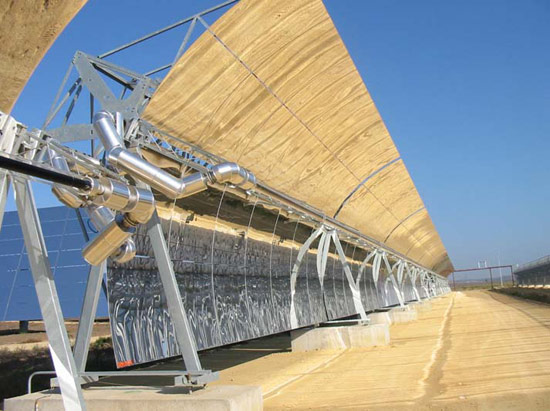Moser Baer, Solar Semiconductor, Lanco Solar and others are in talks with government officials following the recent go-ahead for 716 MW of solar power plants
The western Indian state of Gujarat is being wooed by seven different solar companies looking to set up new manufacturing facilities for solar modules, according to a report in tomorrow’s edition of the Business Standard.
The newspaper quoted a government official saying that the companies that have expressed interest are: Lanco Solar, Moser Baer, PLG Power, Solar Semiconductor, Sunkon Energy, Top Sun Energy, and Waree Energies. Each production facility could draw an investment of between Rs 500 crore and Rs 1,000 crore ($102.5 million to $205 million), according to the paper.
The interest in establishing manufacturing facilities is tied to the recent wave of approvals from the Gujarat government for solar power plants. Earlier this month, the government gave the OK to 34 solar power projects totaling 716 megawatts, which is nearly 3 percent of the state’s power requirement.
The power projects are expected to draw an estimated Rs 12,000 crore ($2.4 billion) in investment by the private firms, with 24 using photovoltaic technology and 10 using solar thermal (see Inside cleantech India: Kal, Aaj aur Kal! and Zebasolar wins 10 MW Gujarat power station bid). Lanco Solar has proposed building a Rs 3,000 crore 200-MW solar PV plant, in addition to a Rs 1,000 crore module manufacturing facility.
The Business Standard reported that the government is now considering establishing a special economic zone (SEZ) for solar module manufacturers.
“Apart from the solar modules being required for their own PV plants, the modules produced by the seven players can also be sold to various other players whose projects would come up in the SEZ,” a source told the paper.
In January, the Gujarat government announced a policy to encourage solar energy through March 2014 for projects between 5 and 500 MW (see Tata Power plans geothermal, solar for Gujarat). Gujarat plans to sign 25-year fixed-rate tariff contracts that exempt companies from paying an electricity duty on solar power sent to the grid or used on-site.
The policy immediately prompted a number of announcements for solar power plants (see Solar farms flock to Gujarat for new tariff plan). Gujarat is viewed as an ideal place for solar power generation because of its abundant open space and high solar radiation.
By 2012, Gujarat is expected to have a demand for 14,000 MW of electricity. The government has targeted 10 percent of the energy sold from renewable resources.











